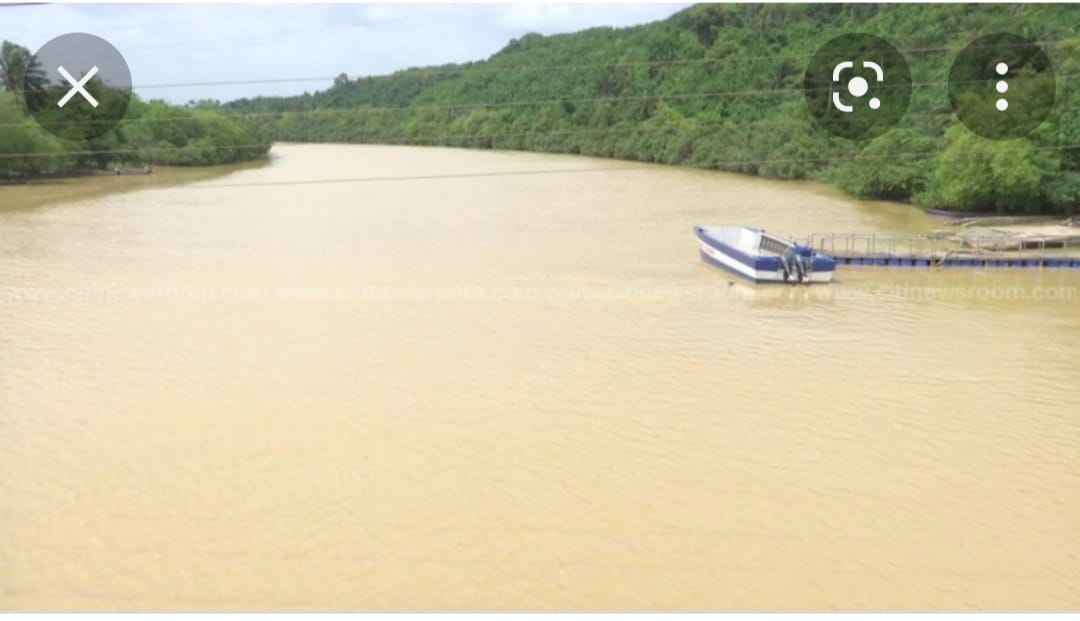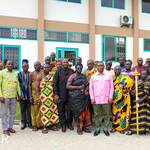Mr. President:
It is another Monday and the time for a reminder that Galamsey is destroying the country and that you need to act, and act quickly, to stem the looming and imminent ecological and food disaster.
We are yet to see any concrete step towards dealing with this Galamsey menace come out of your much-publicised meetings with chiefs and MMDCEs this past week; therefore, in the interim, our reminders will continue.
The actions of Galamsey operators are decimating Ghana, and the consequences are dire. This irresponsible mining of gold is causing and going to cause even more poisoning of our rivers with mercury and cyanide, rampant deforestation, and loss of our sources of drinking water.
A study that was published by Ghanaian and American researchers working with data from NASA satellites shows that between 2005 and 2019, Ghana has been losing about 2600 ha/yr of forests to Galamsey! That is 26 square kilometres. (Bareblitt et al, 2021)
By way of comparison, the city of Kumasi is approximately 254 square km. That means at the rate we are going, land the size of Kumasi is deforested every 9 to 10 years.
At the increased level of irresponsible mining that we are seeing presently, it could be faster.
This is loss of the farms that were and could have been on these lands. Also, not only the forests are lost but the very process of unregulated mining leads to the loss of the topsoil, making farming on these lands after Galamsey near impossible.
The country could be heading towards critical food insecurity at this rate!
Galamsey operators also use mercury to extract gold from the ore. The mercury is burnt off and the vapour is unfortunately inhaled by the miners.
Moreover, as they wash the ore, the unbound metal gets into the rivers and streams and also into the groundwater.
There are several reports of signs of mercury poisoning in several mining areas (Afrifa J et al, 2019).
Also, there is the possibility of mercury poisoning arising in areas far removed from the mining regions. With a national health budget that is already rather constrained, an epidemic of mercury poisoning is the last thing we want to add to our woes.
The excavating, removal, grinding and washing of the ore and the application of chemicals like mercury or cyanide to extract the gold have had profoundly terrible effects on our rivers and streams.
These activities not only pollute the waters, but also dumping of mine refuse leads to obstruction of water flow and increased flooding.
A good example of the danger is shown by work done on samples from the Bonsa River near Tarkwa Nsuaem by Dr Abena Obiri-Yeboah and her group at the Kwame Nkrumah University of Science and Technology, Kumasi (Obiri-Yeboah, Scientific African, Sept 2021).
Turbidity levels – a sign of particulate contaminants – of samples from the river measured 155.75 NTU downstream to 207.0 NTU upstream.
Meanwhile, the World Health Organisation recommends a turbidity level of 5 NTU in water that is used for drinking and cooking. Mean mercury levels were measured at (0.045 ± 0.0062 mg/l) downstream, (0.061 ± 0.0227 mg/l) midstream, and (0.049 ± 0.0138 mg/l) upstream.
These numbers exceed the Ghana Environmental Protection Authority set level of 0.0010mg/l.
Mr. President, all this technical information must bother both you and your government, give you sleepless nights, and spur you to act and to show that you really care for the people of this country.
On 10 July 2017, when you were widely reported to have staked your presidency on ending Galamsey, you added that ‘it will be a betrayal of the trust reposed on me if i fail to end this.’
We recall these words, more than five years after you uttered them, with optimism that you will rise up to the occasion and rein in the irresponsible actions of those who seek to destroy this country. We hope you do it for God and our Country.
Yours in the service of God and Country
OccupyGhana
- Inflation Rate falls marginally to 21.2%in April - 8 May 2025
- Kidnapped victims: Efforts underway to bring them home – CID boss - 8 May 2025
- Thursday, May 8, 2025 Newspaper Headlines - 8 May 2025




